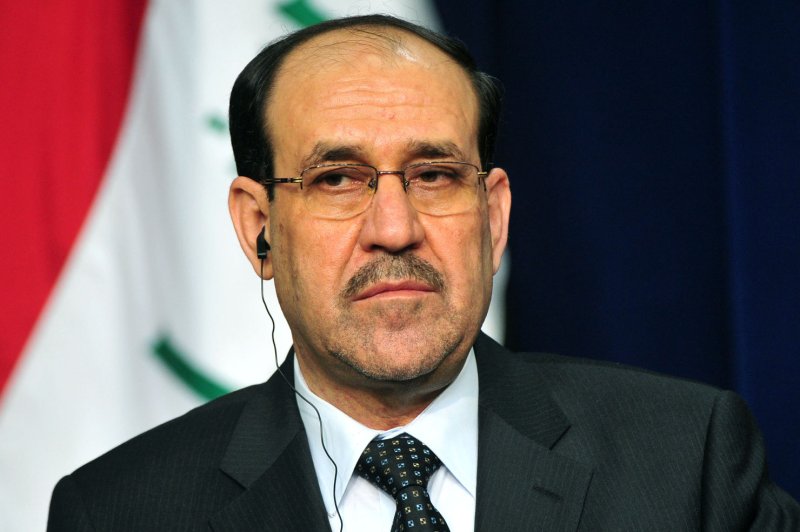Iraqi Prime Minister Nouri al-Maliki on December 12, 2011. (UPI/Kevin Dietsch) |
License Photo
BAGHDAD, Aug. 14 (UPI) -- Iraqi Prime Minister Nouri al-Maliki has reportedly agreed to resign following a tense political standoff after his replacement was named earlier this week.
According to Iraqi state TV, Maliki will officially announce that he will step down from the position he has held since 2006.
Iraqi President Fouad Massoum nominated Haider al-Abadi, a deputy speaker of Parliament, to replace Maliki as prime minister.
Hours before the nomination was made public, Maliki delivered a late night televised address in which he threatened Massoum with legal action for not choosing him as a nominee and mentioned the army as protector of the constitution.
While he delivered his speech, Iraqi forces and tanks increased their presence in Baghdad's Green Zone and remained through the week, prompting the question of whether a coup was imminent.
As recently as Wednesday evening, Maliki asserted it was his "ethical and patriotic duty" to remain in office until Abadi was confirmed by a federal court.
It is unclear what prompted Maliki to concede, but there was mounting pressure from Iraqi politicians for him to step aside and allow Abadi to move forward with government formation.
Under Iraq's constitution, Abadi has 30 days from the date of his nomination to form a unity government.
The West has responded to the political turmoil and ongoing terrorist threat posed by the Islamic State by urging Abadi to move swiftly in forming an inclusive government representative of all Iraqis.
On Tuesday, NATO Secretary-General Anders Fogh Rasmussen echoed a message conveyed by the U.S., that "inclusive government is essential in defeating the Islamic State in Iraq and the Lebant, which represents a threat to the security and stability of the region as a whole."
Maliki had served as prime minister since May 2006.















